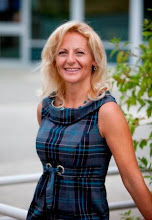

Last week I had the pleasure to take six great students up to Port Alice to do a participatory rural appraisal of tourism potential. The week went extremely well for the team largely due to the efforts of the Village staff and the enthusiasm of people in the community to share their perspectives.
A Participatory rural appraisal is a relatively new research approach which essentially brings a team (with differing perspectives) into a community for a week or longer to engage in dialogue on topics of interest to the community. The invite comes from the community and they largely drive the questions that they are seeking to know more about - in this case for Port Alice - it was to get residents to learn about the impacts of tourism and to explore its fit and future potential for the area.
First in the community, we did a tour to get familiar with the sites that could work as attractions or support for tourism. These were later visited again to learn about them in more depth, and they included natural and cultural sites of significance. We hosted two public meetings - which were both well attended. The first one was used for me to give an overview on the realities of tourism development for rural communities. I covered the impacts, both good and bad, that can result from tourism and gave them an idea of the ingredients for success. The meeting was well publicized and we had about 40 people turn out to share their ideas, hopes, fears and questions about tourism in Port Alice. Later in the week, we reported back to the community about what we heard and found during the week and we will share all the insights in a report this week as well (rapid report back is also a feature of the PRA approach). The students actively engaged in discussion with about 32 people outside of the meetings - sharing their ideas and learning from residents.
So what did we find in a nutshell? Port Alice is at a very early stage of tourism development - so early in fact, that my assessment tools had to be adjusted to give them proper feedback. They scored relatively low on their current "system" but it in no way was an indication of their potential for tourism. I believe it is only a matter of time until people begin to notice Port Alice and it is best that the community plans for this instead of just let's it happen. They agreed - the residents expressed strong support for tourism (based on about 72 people - and we actively searched for nay sayers!). They have an abundance of natural assets that could support adventure tourism - and I believe they have some competitive advantage over other island communities in terms of their access to ocean, fresh water, rivers and a variety of terrestrial settings. Wildlife viewing and photography opportunities are abundant, and the town has a very unique heritage that, if told, could keep visitors around in the community as well. The setting is extremely picturesque, on the water in a sheltered inlet which could support access to a variety of water based pursuits (kayaking, boating).
But, Port Alice also has a few barriers to overcome. They are not used to tourism and in fact, have not supported its growth for sometime (so we understand). Their neighboring communities are further along and will be able to attract and support visitors experiences better than Port Alice right now. It will take some investments in basic visitor experiences and infrastructure to get ready for more visitors, and they will have to fine tune the image that they want to put out about themselves to the public. Working with their neighbors is essential and there I have some faith as the North Island has a collaborative marketing initiative underway with a good funding base and some great people (with experience) to assist them.
For me, this PRA was exciting as we were able to work with a community at such an early stage of development. I was happy to help get them off to a good start by getting them to talk about tourism, its realities and steps to move forward. I look forward to continuing that support and to watching the residents pull together to diversify through tourism in the upcoming years.
The report will be released this week and available through Keir Gervais, Director of Operations for Port Alice, and we will post it on the trip website as well at www.trip-project.ca (under resources, then reports). Thank you to all the people in Port Alice for sharing your ideas and participating with us in this discussion about tourism in your community - we wish you the best. Thanks to my great team of students, Wendy Scott, Kelsey Milne, Taz Hartwick, Gareth Davies, Maddy Koch and Becky Jones - you were amazing!








